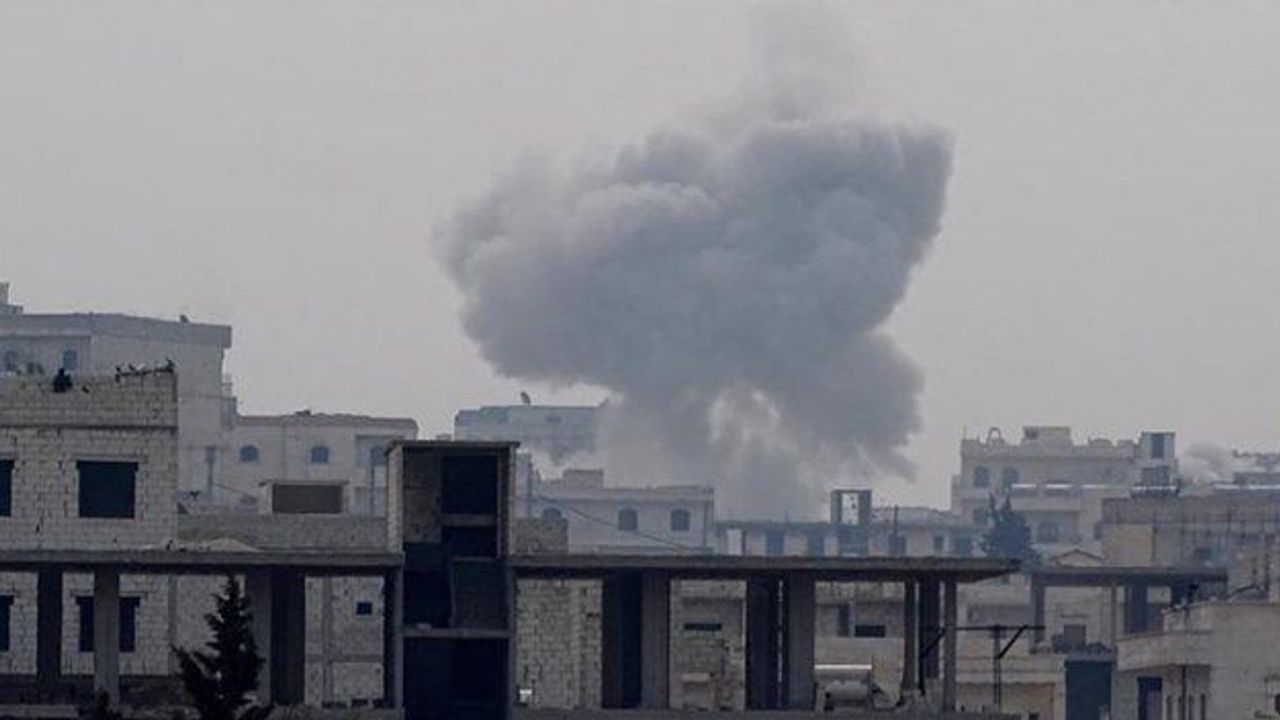Despite Munich talks, Russian airstrikes in Syria set to continue
While Moscow has called for postponing planned 'cessation of hostilities' to March 1, opposition figures say they simply can’t wait that long

Ongoing Russian airstrikes in Syria appear to be hindering a political solution to the conflict despite last week’s meeting in Munich of the International Syria Support Group (ISSG), to which Moscow and Washington both sent representatives.
The ISSG convened last Thursday with the stated aim of launching a political process aimed at ending the conflict, which has seen some 250,000 Syrians killed -- and millions displaced -- since it began in mid-2011.
At the meeting, however, Russian Foreign Minister Sergey Lavrov said Moscow would continue carrying out airstrikes in Syria -- at least in the short term.
He pointed out that the agreement reached between meeting participants -- which included calls for an eventual ceasefire -- only covered humanitarian aid and the Syrian political process.
What’s more, Lavrov noted, the agreement excluded organizations such as Daesh and the Nusra Front -- both of which have been designated as terrorist groups by the UN Security Council and both of which are the ostensible targets of Russia’s ongoing airstrikes.
But while Moscow says its warplanes are targeting Daesh positions in Syria, some members of the western NATO alliance say Russia is targeting moderate opposition groups opposed to Syria’s Assad regime.
‘Cessation of hostilities’
According to an ISSG statement issued last Friday, humanitarian access to besieged areas in Syria will begin this week, along with a nationwide "cessation of hostilities".
U.S. Secretary of State John Kerry, for his part, said meeting participants had preferred the phrase "cessation of hostilities" to "ceasefire", as the latter bore legal implications that had not been adopted by participant countries.
Given Syria’s current chaotic landscape, however, it remains unclear which groups exactly will be party to the "cessation of hostilities" called for by the ISSG.
While Moscow has called for postponing the planned "cessation of hostilities" to March 1, opposition figures say that -- in light of the enormous damage being sustained on the ground -- they simply can’t wait that long.
"We can’t wait until March 1," Hind Kabawat, a member of the pro-opposition High Negotiations Committee, told Anadolu Agency. "This would be a disaster for Syria."
"We need a ceasefire right now," she asserted, calling for an immediate halt to Russian airstrikes in particular.
Since beginning its air campaign in Syria last September, Russia has come under mounting international criticism amid reports that it is targeting civilian areas -- and the opposition groups that control them -- in an effort to prop up the Assad regime.
Over the course of the last four months, ongoing airstrikes by Russian warplanes have forced more than half a million Syrians to leave their homes, with many fleeing to Turkey or other neighboring states.
Syria has remained locked in a vicious civil war since early 2011, when the Assad regime cracked down on pro-democracy protests with unexpected ferocity.
Since then, more than 250,000 people in the war-torn country have been killed and more than 10 million displaced, according to UN figures.
Anadolu Agency







